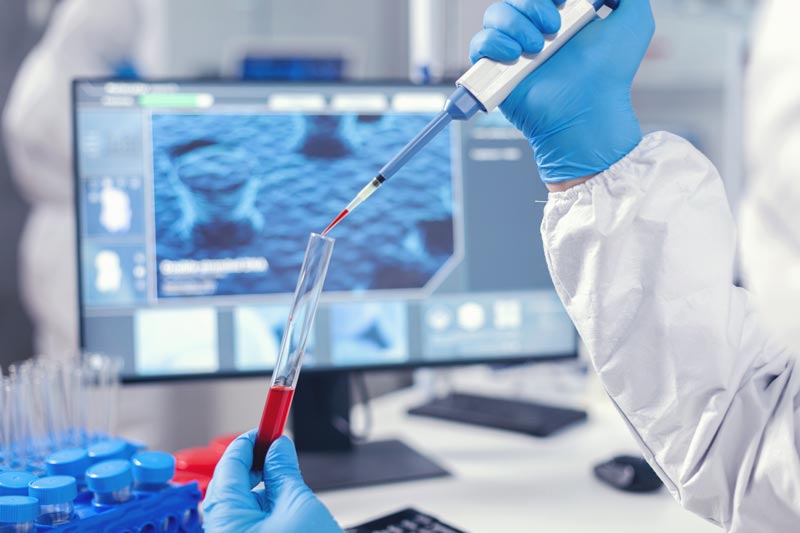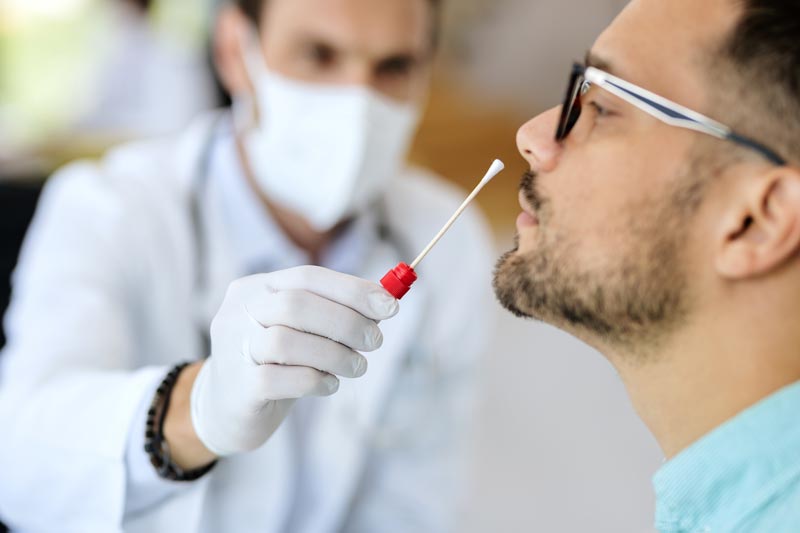In our fast-paced world, our mental well-being often takes a backseat to our busy lives. However, just like our physical health, there are moments when our mental health demands immediate attention. This blog highlights nine unexpected situations where urgent care for mental health, often overlooked, can be a lifesaver. By recognizing these scenarios and seeking urgent care when necessary, you can ensure your mental well-being remains intact even during challenging times.
 Seeking urgent care for mental health is crucial because, just like our physical well-being, our mental well-being also deserves immediate attention and care. Here’s why you should consider urgent care for your mental health:
Seeking urgent care for mental health is crucial because, just like our physical well-being, our mental well-being also deserves immediate attention and care. Here’s why you should consider urgent care for your mental health:

1. After a Significant Life Change
Life is filled with transitions that can affect our mental health. From losing a job to going through a divorce, these significant changes can lead to stress, anxiety, and depression. Urgent care for mental health might not be the first thing that comes to mind, but it can provide the support needed to navigate these challenging times. If you struggle to cope after a significant life change, contacting urgent care like DOCS Urgent Care – West Hartford can offer the lifeline you need.2. Sudden Onset of Severe Anxiety
Anxiety is a natural part of life, but it can become overwhelming when it escalates to severe levels. Urgent care isn’t just for physical ailments; it’s a vital resource for those grappling with sudden and intense anxiety. Symptoms like a racing heart, sweating, and constant worry can be debilitating. By recognizing these signs and seeking urgent care in West Hartford, CT, you can learn coping techniques and strategies to manage anxiety effectively.3. Post-Traumatic Stress Reactions
Post-traumatic stress reactions are common after experiencing traumatic events. These reactions can lead to feelings of fear, panic, and emotional distress. Urgent care offers a safe space to address these reactions promptly. You can learn how to process trauma and regain control over your mental well-being through counseling and therapeutic interventions.4. Overwhelming Grief and Loss
Grief and loss are universal experiences, but they can sometimes become overwhelming. Urgent care is crucial in helping individuals cope with intense grief and emotional pain. By recognizing when grief interferes with daily life, you can seek urgent care to receive the support and guidance needed to navigate the healing process.5. Unexplained Mood Swings
Mood swings are often brushed aside as normal emotional fluctuations, but extreme mood swings can indicate underlying mental health issues. Urgent care is essential for managing unexplained mood swings that impact your daily life. By addressing these shifts promptly, you can regain emotional stability and prevent further deterioration of your mental well-being.6. Relationship Struggles Taking a Toll
Relationships can significantly affect our mental health. When relationship struggles become overwhelming, seeking urgent care can provide a lifeline. Whether addressing communication issues or navigating conflicts, urgent care offers a safe space to work through relationship-related distress and regain emotional balance.7. Disturbing Sleep Patterns
Sleep is closely linked to mental health, and sleep disturbance can exacerbate emotional distress. Urgent care can address issues like insomnia or nightmares that disrupt your sleep. You can restore healthy sleep patterns and support your mental well-being through therapy and strategies for better sleep hygiene.8. Intense Feelings of Isolation
Feelings of isolation can profoundly impact mental health, leading to depression and anxiety. Urgent care provides an avenue to combat these feelings of loneliness by connecting with mental health professionals who understand the importance of human connection. Through supportive interventions, you can navigate through loneliness and regain a sense of belonging.9. Drastic Changes in Appetite
Changes in appetite, whether overeating or losing appetite, can signal emotional distress. Urgent care offers valuable insights into managing emotional eating patterns and promoting a healthy relationship with food. By addressing these issues promptly, you can support your mental and physical well-being.Why Seek Urgent Care for Mental Health?
 Seeking urgent care for mental health is crucial because, just like our physical well-being, our mental well-being also deserves immediate attention and care. Here’s why you should consider urgent care for your mental health:
Seeking urgent care for mental health is crucial because, just like our physical well-being, our mental well-being also deserves immediate attention and care. Here’s why you should consider urgent care for your mental health:
Timely Support
In the realm of mental health, timing is everything. Urgent care provides a lifeline by offering prompt support precisely when required. Mental health issues can intensify swiftly, and seeking urgent care can stop their progression, safeguarding you from a worsening situation. Acting promptly gives you the best chance to manage challenges effectively and regain stability.Crisis Management
In moments of crisis, urgent care becomes a beacon of specialized assistance. When confronted with severe anxiety, panic attacks, or overwhelming emotional distress, urgent care professionals possess the expertise to guide you through these tumultuous waters. Their interventions are designed to help you navigate these trying times, providing coping strategies and tools to regain control amidst the chaos.Preventing Escalation
An ounce of prevention is worth a pound of cure for mental health. Early intervention through urgent care can halt the progression of mild concerns before they evolve into more serious and chronic conditions. Armed with effective tools and coping mechanisms, you can manage symptoms while they’re still manageable, preventing them from growing harder to handle down the road.Expert Guidance
Urgent care is staffed by mental health professionals who deeply understand your challenges. Their expertise allows them to accurately assess your condition, offering tailored guidance and strategies that resonate with your needs. With their support, you can navigate the complexities of managing your mental health, armed with insights that foster a stronger foundation for well-being.Immediate Coping Techniques
Urgent care delivers immediate coping techniques in the face of distressing symptoms like anxiety, panic, and mood swings. These practical strategies empower you to regain mastery over your emotions. By equipping you with effective tools, urgent care sets you on a path toward reclaiming emotional equilibrium, fostering resilience even in the most trying of circumstances.Factors to Consider When Choosing Urgent Care in West Hartford, CT
When searching for suitable urgent care in West Hartford, CT, you must delve into several pivotal factors to ensure you’re promptly met with the right medical attention. Here’s a comprehensive breakdown of the key elements to weigh:✔️ Location and Accessibility
Selecting an urgent care facility that boasts a convenient and easily reachable location is paramount. Prioritize centers that are within proximity to your home, workplace, or daily commuting routes. This strategic choice guarantees that you can swiftly access the facility during emergencies, saving precious time.✔️ Operating Hours
The essence of urgent care lies in its availability when you need it the most. Opt for an urgent care center that extends its operational hours beyond the standard 9-to-5 schedule. Facilities offering evening and weekend services ensure that your medical needs are met regardless of the hour.✔️ Medical Services Offered
Diverse urgent care centers cater to varying medical services. Prioritize a facility that aligns with your potential medical needs, ranging from minor injuries and illnesses to vaccinations and basic diagnostic tests. A versatile center provides comprehensive care under one roof.✔️ Medical Staff Qualifications
Delve into the qualifications and expertise of the medical professionals staffing the urgent care facility. Confirm the presence of licensed healthcare practitioners, including doctors, nurse practitioners, and physician assistants, to ensure you’re in capable hands.✔️ Facility Equipment and Resources
An adept urgent care center has essential medical resources to expedite diagnosis and treatment. X-ray machines, on-site laboratory facilities, and access to crucial medications are indicators of a well-prepared facility.✔️ Wait Times
While timely care is the focal point of urgent care in West Hartford, CT, it’s prudent to inquire about anticipated wait times, especially during peak hours. Facilities offering online check-in or appointment scheduling can help you manage wait times and streamline your visit.✔️ Insurance Acceptance
Ease the financial aspect of your visit by confirming that the urgent care facility accepts your health insurance. This minimizes out-of-pocket expenses and facilitates a smoother billing process.✔️ Cost Transparency
Prioritize transparency in pricing by seeking clarity on consultation fees, test costs, and any additional charges. A clear understanding of the financial aspect allows you to make informed decisions.✔️ Reviews and Reputation
Peer reviews and word-of-mouth recommendations offer invaluable insights into the reputation of an urgent care center. Positive feedback indicates a center prioritizes patient satisfaction and quality care.✔️ Infection Control Measures
Given the current emphasis on health and safety, ensure the urgent care facility adheres to stringent infection control protocols. This is crucial for safeguarding your well-being during your visit.✔️ Age Groups Served
If your family includes children or the elderly, ascertain that the urgent care center is equipped to cater to various age groups with the appropriate medical attention.✔️ Referral Network
If your condition requires specialized care beyond the scope of urgent care in West Hartford, CT, having access to a reliable referral network ensures a seamless transition to further healthcare providers.✔️ Patient Feedback
Engage with individuals who have visited the urgent care center to gain firsthand insight into their experiences. Their narratives provide invaluable perspectives on the quality of care and service delivery.Tips for Maintaining Good Mental Health




 Influenza (Flu)
Influenza (Flu)
